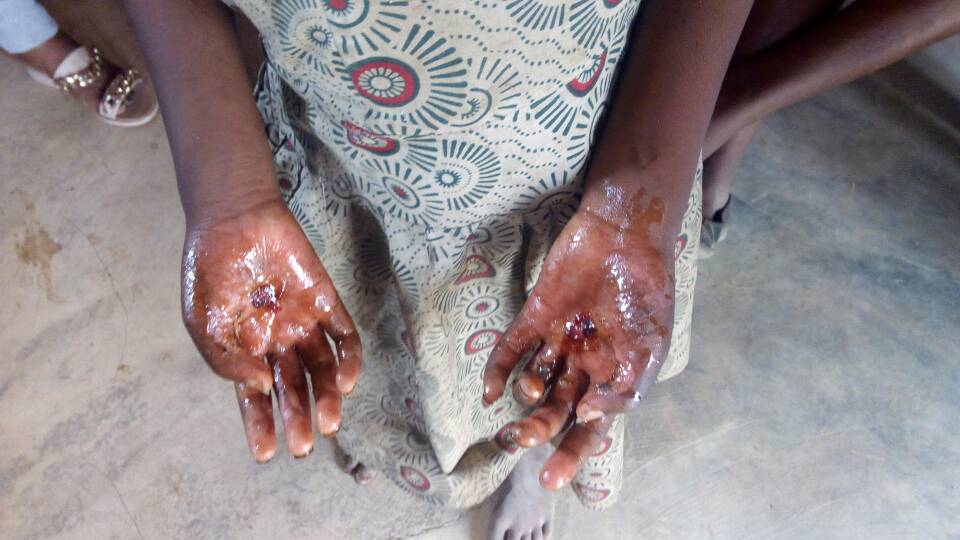ThursdayRapAround
Domestic Violence: A Silent Killer That Must Be Tamed

By Michael Ayotunde
Women are regarded as weaker vessels in some quarters.
Whether this assertion is true or not, it is a different topic for another day.
Traits that are traditionally exhibited by women include gracefulness, gentleness, empathy, humility, and sensitivity, though these traits vary across societies and individuals, and are influenced by a number of social and cultural factors.
Naturally, women are known to be profound and resilient.
They are however limited in some respect. This is due to their mental, social fragility, particularly when compared to the menfolk. Due to the vital roles they play in the society, they are thus expected to be treated with respect and dignity.
Even the scripture is categorical about their place in the order of things where it says men MUST give honour to their wives. “Treat your wife with understanding and respect as you live together,” goes a saying from the scripture.
To this end, violence against women is a global phenomenon; it is now widely recognized as a serious human right abuse, and an important public health problem with substantial consequences, ranging from physical, mental, sexual, and on to reproductive health.
Domestic violence being such a complex phenomenon, there is no clear definition for it. As such, it is often understood differently by different people in different contexts – such as those from different countries, cultures, or belief systems.
By looking more critically into the nature of acts of violence against women, the following categories readily come to mind: physical violence, sexual violence, psychological violence, and neglect. One aspect that is so endemic in our society today, that even government pay little or no attention to, is discrimination. This is just the height of it.
Little wonder the recent rejection of women’s rights enhancement bill by the National Assembly received wide condemnations; a situation that forced some groups to declare March 1, 2022, the day lawmakers voted against the bills, as a black day in the annals of Nigerian history.
The fact of the matter is – a lot of women are dying in silence – owing to abuses of some sort. This has continued to plague communities both far and near. A good number hid beneath blanket of silence, writhing in pains of abusive relationships.
From female genital mutilation, child marriage and human trafficking to domestic violence and homicide, women and girls face continued struggles in our world today more than anything. No doubt, it can be difficult to come to term with the difficulties faced by others, particularly the women from the comfort of our living rooms. But the signs are there, staring us rudely in the face.
According to a report by the United Nations Office for the Coordination of Humanitarian Affairs (OCHA), one in 3 women worldwide is said to have experienced physical and/or sexual violence in their lifetime; as many as 38% of murders of women are committed by a male partner; 200 million women and girls have experienced female genital mutilation; each year, 15 million girls are married before the age of 18; it is also estimated that up to 10 million children are victims of child sexual exploitation.
These figures, no doubt, are alarming and heart-rending. It beats one’s imagination that these ugly trends are allowed to fester in our world and till date, people still indulge in it.
The recent death of a popular gospel artist in Abuja, Osinachi Nwachukwu, whose death was allegedly caused by her husband is a sad reminder of the danger this monster has done to our society – still without enabling laws to arrest the ugly trend.
It is pathetic to note that she lived with it, without divulging the situation even to her family members or spiritual leader. This is an attestation to the fact that there are millions in her shoes. Her case is sure not the only one. Just on April 1, 2022, there was the reported case of one Chinyere who just returned from Scotland but got roasted by her husband alongside her brother.
It is on record that Nigeria enacted the Violence Against Persons (Prohibition) Act in 2015, to protect people against various forms of violence. This accordingly, has been domesticated in about 22 states of the federation. Despite this, the cases of domestic violence have refused to abate.
This goes to show there have to be concerted effort on the part of everyone – the society, government, religious bodies, non-government organisation – to decisively take necessary actions to halt this malaise in our society.
Actions should centre on proper education and enlightenment campaigns to neutralise these evil intentions; expose root causes of violence against women and other persons in the society. People must understand they need to interrupt sexist and discriminatory language, be critical and ask questions where necessary, interrupt abuse early by speaking up; and stop sexual harassment.
There is also the need to develop action plan to fight this scourge. Notably, people have been calling for the establishment of anti-domestic abuse Act. If the already enacted laws have been effective, people will not be calling for the formulation of another laws.
Our society must be seen to abhor this nefarious act or anything that has to do with violence against persons. It must be condemned by all-right thinking individuals. It is then the monster will fade out naturally.












